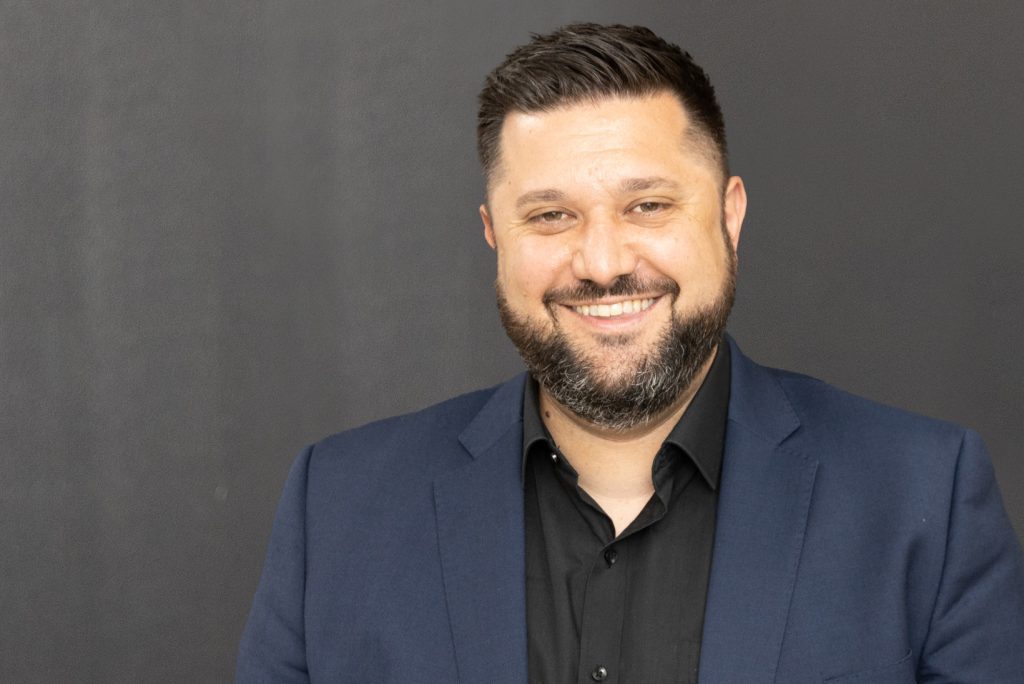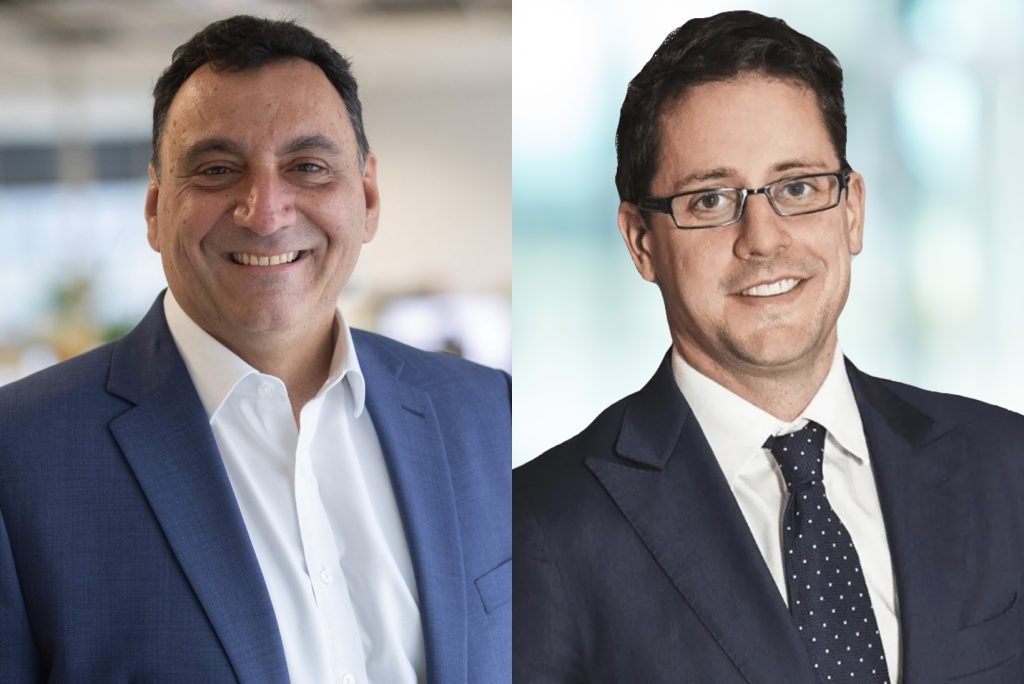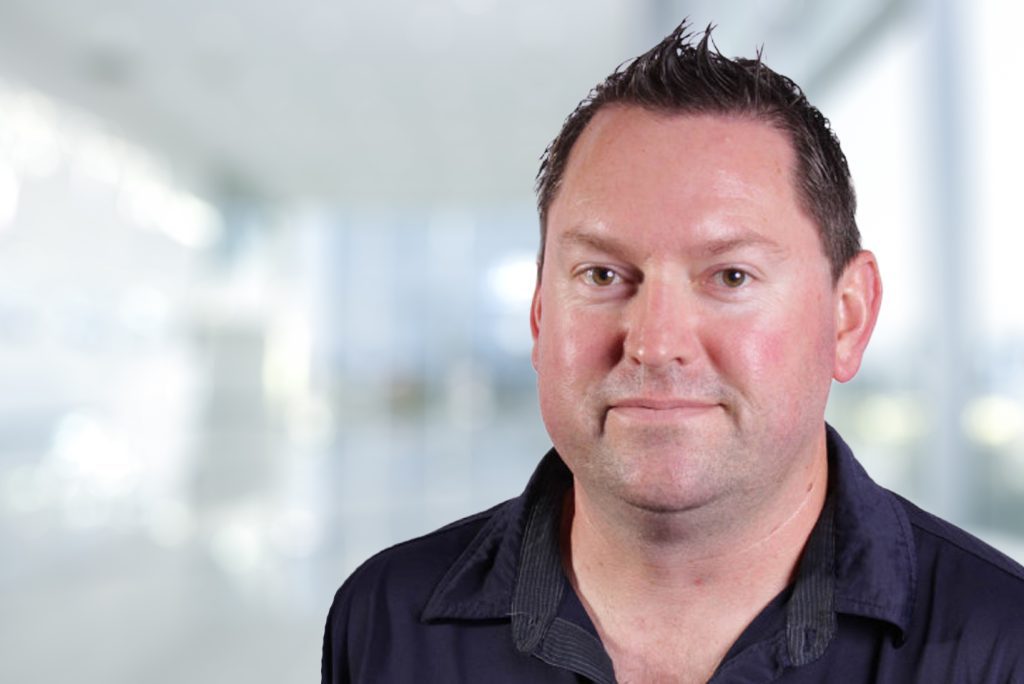November 27, 2023
$18 million is a lot of money, just ask Pieter DeGunst – 12 months on from finalising a round of capital raising in Australia.
Representing a significant investment – and endorsement – of a well-crafted executive strategy, this amount of funding naturally comes with elevated expectations. Securing money is one thing, spending it wisely is another matter entirely.
As Managing Director of Tecala Group – a Sydney-based managed service provider (MSP) which secured funding from Armitage Associates in November 2022 – DeGunst is energised by such expectations.
Don’t confuse energy with ease however. This is a business leader emboldened by the task ahead but analytical in approach and disciplined in delivery.
“Before looking ahead, the right way to frame this is to look back at the strategic plan that led up to our capital raise,” DeGunst explained.
“We had reached the end of our three-year plan and had achieved everything we set out to achieve. We established our core business of managed services, cloud and communications as strong and mature offerings, supported by robust service management and security.”

With the groundwork laid, attention turned to scaling. The partnership with Armitage Associates supported a planned national growth strategy and deeper push into the mid-market sector.
“We wanted to scale and expand our business into new geographies and win new customers,” DeGunst recalled.
As part of the investment, Steve Nola – a well-respected industry figure – joined the board as Chairman, tasked with providing advice and guidance to help the team accelerate in market. Mark De Ambrosis was also recruited to the board, armed with decades of experience in scaling companies such as Tecala.
Now was time to put $18 million of business investment to work and for DeGunst, this strategy centred on two fundamental principles:
Firstly, making the right bets
The market is overflowing with literature on whether businesses should be first movers or fast followers – meticulously weighing up the pros and cons of going all guns blazing vs. watching, waiting and then executing.
Often, definitions become blurred and based on history, the industry is indifferent. Facebook wasn’t the first social network nor was Spotify the first online streaming music platform.
As summarised by Scott Anthony – an innovation consultant writing in the Harvard Business Review – “no one remembers who leads a race at the halfway point. They care about who crosses the finish line”.
Based on that logic, the focus is seldom about whether or not to go first, rather the plan required to accelerate a breakthrough idea or strategy.
“We weren’t coming from a position of weakness or facing a need to pivot, this was about building a broader and deeper service portfolio,” DeGunst said.
Opportunities were aplenty with the Internet of Things (IoT) and blockchain offering viable growth options. Both segments already housed deep levels of domain expertise however and represented too far of a leap away from the company’s core value proposition.
“The lens in which we looked at this was simple,” DeGunst explained. “Who are the customers that we serve? What are their needs today? What are their needs in the future?
“We were assessing technologies that were applicable to every single customer that we had which is when we started to zero in on automation.”
Following many years delivering cloud migration projects – helping organisations digitally transform by operationally running and managing workloads – a move into automation represented a natural extension of skills and services.
Tecala had cloud under control but could see the next bastion of investment going into software-as-a-service (SaaS) and business process optimisation – “just trying to run organisations more efficiently and productively”.
While automation as a technology is considered a “broad-brush term”, almost all of Tecala’s customers had some form of project or skunkworks underway in this specific segment – whether automation, data, artificial intelligence (AI) or robotic process automation (RPA) among others.
“Similar to cloud, we need to see a multi-decade investment cycle when we invest in a technology and that was true with automation,” DeGunst added. “This isn’t a short-term approach.”
With market validation secured, Tecala started to build capabilities through the creation of an in-house automation business. The dedicated practice started organically with the addition and up-skilling of 10 employees but with speed-to-market crucial, acquisition always remained the primary focus.
“We knew the market and the technology because we’d done the work before, so we didn’t want to wait,” DeGunst detailed.
“We were primarily looking for talent. Customers and revenue are always good but that wasn’t the main motivator, we were finding talent. How do you find intellectual property? How do you find that library of knowledge and skills?”
This prompted a market scan unearthing more than 100 players operating within Australia.
At the top end of town, consultancy giants such as KPMG – supported by Wiise which is backed by Microsoft – dominated. A notable selection of pure-play specialists with reasonable size existed also, followed by a long-tail of automation partners within the Microsoft and UiPath ecosystems.
On paper the quantity was there but upon closer inspection, quality questions remained.
“There’s so many fly-by-nighters hanging around the market hoping to take advantage when a new technology emerges – who truly had the quality of delivery?” DeGunst cautioned. “In those scenarios, generally speaking, everything is off-shore and sub-contracted out.”

On that basis, another key question emerged – where is the acquisition target playing?
Most ecosystem partners are happy to swim in the lanes of large-scale enterprise accounts, such as Westpac, Commonwealth Bank and Telstra. Given the amount of investment allocated to AI and automation within those organisations, that approach is justified.
But competition is fierce with Tecala instead focused on servicing the under-serviced – chiefly the small to medium-sized enterprise (SME) sector.
“rapidMATION was the same, they liked servicing SMEs,” DeGunst said. “They could have hit their yearly number inside Westpac but instead, they serviced 75 customers. They were truly operating at the coalface with executive teams which was important to them and to us.
“This was everything that we look for at Tecala. They shared the same view of the world and that cultural alignment was a huge factor behind the acquisition.”
The acquisition of Sydney-based rapidMATION was completed in September 2023 for a reported fee of $10 million, with the entire team joining Tecala to make a combined 200-strong workforce in Australia.
“We were looking for depth of talent, depth of technical IP and depth of customer base,” DeGunst outlined. “Look at RPA and most development centres servicing Australia are located in India or Romania, which is a natural approach for cost saving reasons.”
Alternatively, the appeal of rapidMATION was a 100% Australia-based team.
“During our market scanning, I struggled to find a similar company,” DeGunst said. “Most had 3-4 people in Australia and the rest overseas. There’s nothing wrong with that as a business model but it’s not our business model.”
In addition to local expertise, DeGunst emphasised the equal importance of talent seniority. This can be translated in going against the enterprise model of having Team A show up to sell and Team D follow on to deliver.
“This was similar to Tecala,” he added. “We go into customers with seasoned 20-year veteran developers who can articulate the vision and will then be the person who delivers the project. People who work in our business are absolutely at the top of the tree in terms of being super-skilled consultants, technicians and engineers.”
Secondly, scaling with quality
The next phase was shaped by those strategic bets made – technology in the form of automation, mid-market as an industry focus and rapidMATION as the acquisition partner of choice.
But despite being armed with focus areas, sizeable investment and a mandate to scale, DeGunst was quick to emphasise the importance of maintaining high-standards during the expansion process. Stretching the business into a national player should not result in a stretching of quality.
“We already had service offerings and capabilities so the acquisition was additional horsepower,” DeGunst said. “If we had walked into a new organisation before this acquisition, we might have been able to respond to two out of the five requirements. Now, we can respond to all five.”
The acquisition created a new business unit at Tecala in the form of ADA – automation, data and AI – and is headed up by Shaun Leisegang, former CEO and Founder of rapidMATION.
This idea originated more than three years ago and was initially focused on RPA, before intense market interrogation challenged company thinking and triggered a shift in focus.
“We learned that RPA in isolation is near useless and represents only 15-20% of the work,” DeGunst acknowledged.
“This is a very good piece of technology which we need but it’s not the panacea. We had no intention of going out to market as an RPA house because it needs to be part of an overarching solution.”
Through peeling back the technology layers, the need for strong data integration with applications was instead recognised, supported by an ability to digitise manual or inefficient processes and enhance automated workflow capabilities.
Under the construct of this framework, work is now underway to create micro apps capable of performing specific tasks or functions within larger software ecosystems.
“When building micro apps for dedicated purposes, building data integration and data universe capabilities is crucial to drive a massive step change in efficiency,” DeGunst noted.
“That’s why we named our business unit, ADA, and have 35 people with very diverse skill sets in that team. We wanted to make it clear that automation is just one of the pillars.”
The concept of micro apps can be aligned to “The 1% Factor” belief. First championed by Sir Dave Brailsford of British Cycling in 2002, this was founded on the principle of “the aggregation of marginal gains”.
The theory centred on breaking down every aspect of riding a bike and improving each part by 1% – resulting in a significant increase when reassembled. Emerging from distinct mediocrity, the British team embraced this philosophy to claim 16 Olympic gold medals and seven Tour de France victories within the space of eight years.

“We’re very bullish about micro apps,” DeGunst confirmed.
This form of product creation isn’t about trying to build a customer relationship management (CRM) or enterprise resource planning (ERP) system however, rather understanding the power of micro apps in performing a super-specialised task at a mid-market level.
“We are very supportive of the big platform players and understand how they architecturally fit into our customer environment,” DeGunst outlined.
“It’s not about advocating against that because every single business that we serve has gaps in functions and procedures – those nuances exist. We think micro apps can represent very powerful tools for our customers.”
For example, two insurance companies operating within the same industry operate very differently when looking under the covers. The business processes are different because they are different organisations with different cultures, different ideas and different ways of working.
“That is where competitive advantage lies so you don’t want to eradicate that uniqueness by saying, ‘okay team, let’s deploy Salesforce and run our businesses in exactly the same way’,” DeGunst highlighted. “That’s when you have no competitive differentiation whatsoever.”
This philosophy of unearthing company nuances and nurturing secret sauces to help businesses tick is grounded in Tecala’s commitment to scaling with quality. There is little tolerance for blanket advice and blind adoption – don’t forget, “The 1% Factor”.
“The micro apps that we are building are helping customers manage processes more efficiently,” DeGunst said.
One such example is email triage, an AI-powered tool delivered via rapidMATION’s software portfolio.
“The sheer mental effort of each individual processing emails on a daily basis is huge,” DeGunst shared. “Whether you’re sat in front of the computer for 10 or 12 hours – a huge portion of that time is spent dealing with email.”
In addition to helping classify and file emails while offering suggested actions, the product also learns. If a user regularly receives a consistent type of email, replies can be selected from pre-canned options which can be edited and sent.
“If that takes you three seconds to respond instead of 3-5 minutes, then these micro apps are worth using to give back time,” DeGunst said.
Another example was the recent automating of an entire HR process for an organisation hindered by lengthy on-boarding and off-boarding processes for employees. The project reduced reliance on an outdated system and converted 2-3 days of manual work into an automated task that now takes five minutes.
“Think of the impact on a 1000-person business which has a churn of 200 people each year,” DeGunst explained. “That’s off-boarding 200 people and on-boarding 200 people per year before growth has even been considered. They might need to on-board an extra 300 people a year also on top of that.
“Do the numbers and multiply that by the 2-3 days to set up or remove each employee in the system and that represents some very significant and material time savings.”
The strategy executed by DeGunst and his team is so far paying dividends, evident through increased customer retention and acquisition levels.
User retention currently sits at 97% with the company also recruiting a record haul of new customer logos during the past 12 months, primarily via referral channels and inbound digital marketing campaigns.
“Volumetrically, our business is increasing and our activity levels have increased by 4X to generate that return,” DeGunst said. “But I don’t think we’ve achieved that in particularly buoyant market conditions, it’s been a challenging time.”
Marketing aside, the on-boarding of new business has chiefly been triggered by a rise in customers changing MSPs. This has propelled managed services to the top of the list as the fastest growing unit within Tecala.
“Managed services is our core nucleus,” DeGunst added. “The majority of new customers that we have won were either with an MSP that was too big and didn’t give them a lot of love or an MSP that was too small and they outgrew them.”
Thousands of MSPs exist in Australia but for DeGunst, most only offer basic services such as keeping the lights on, managing PCs and providing internet connections.
“Even that’s to a varying degree of quality,” he claimed. “They’re not pushing into the next bastion of solutions and advising customers on how to maximise new technologies.
“That’s a big reason why we’re seeing lots of MSPs merge and bolt together because they’re all chasing scale. But most have left it too late.”
Inform your opinion with executive guidance, in-depth analysis and business commentary.